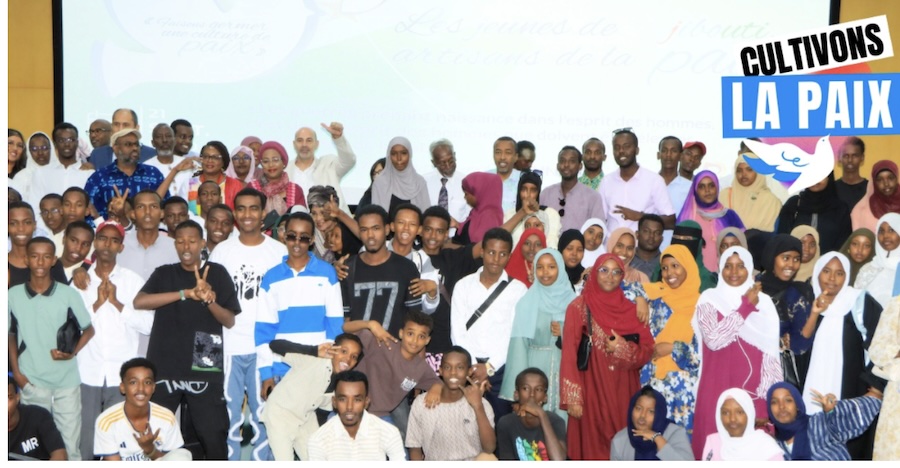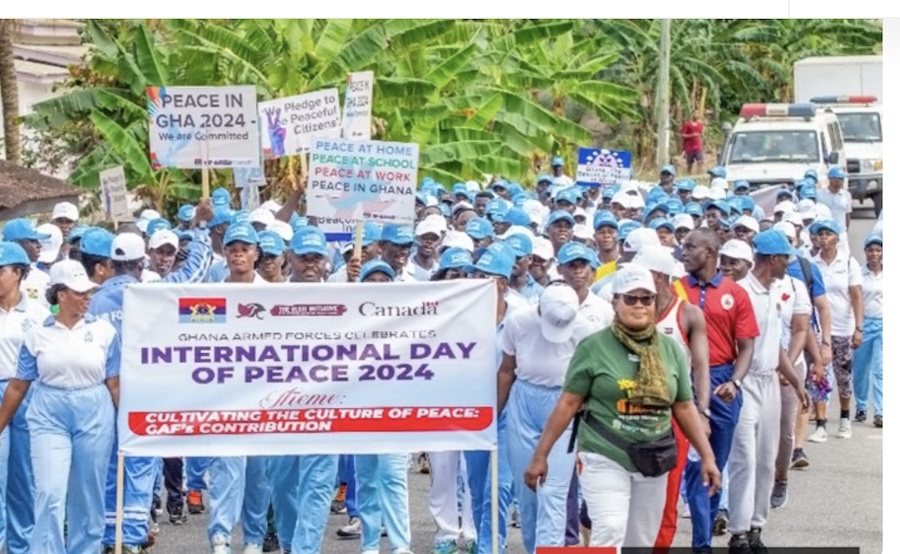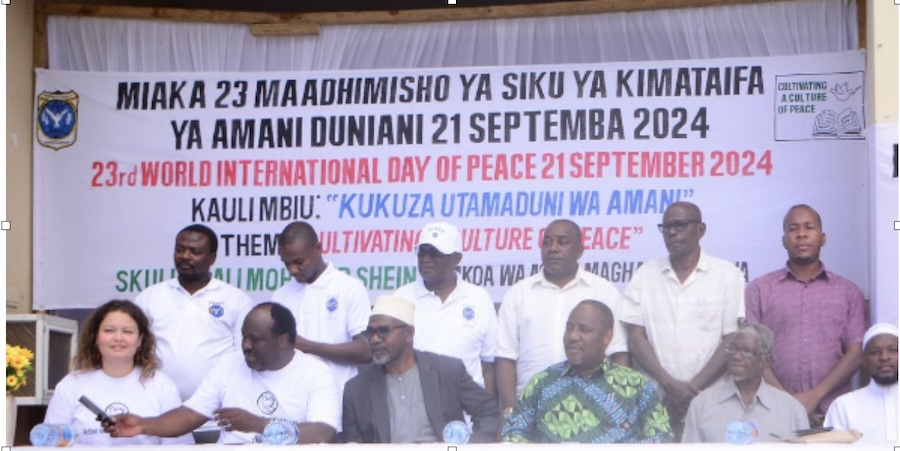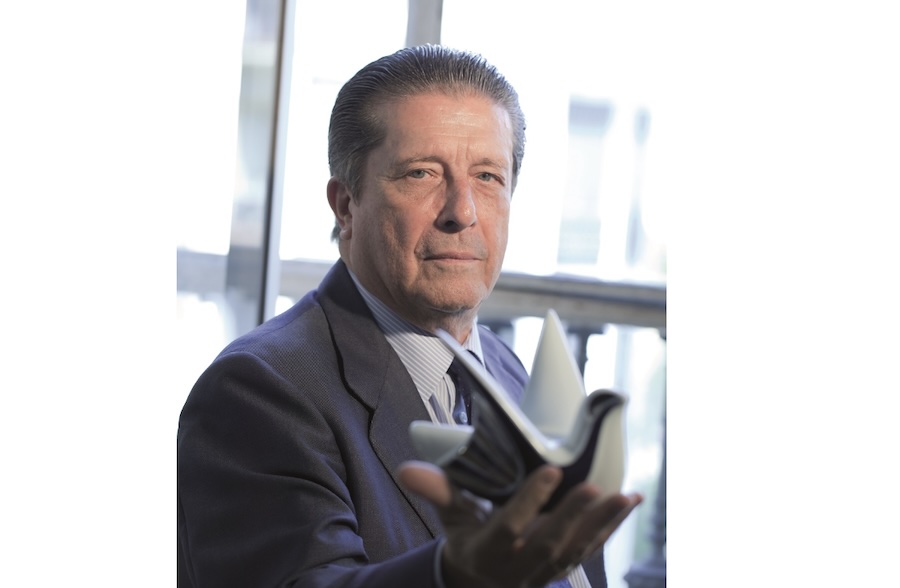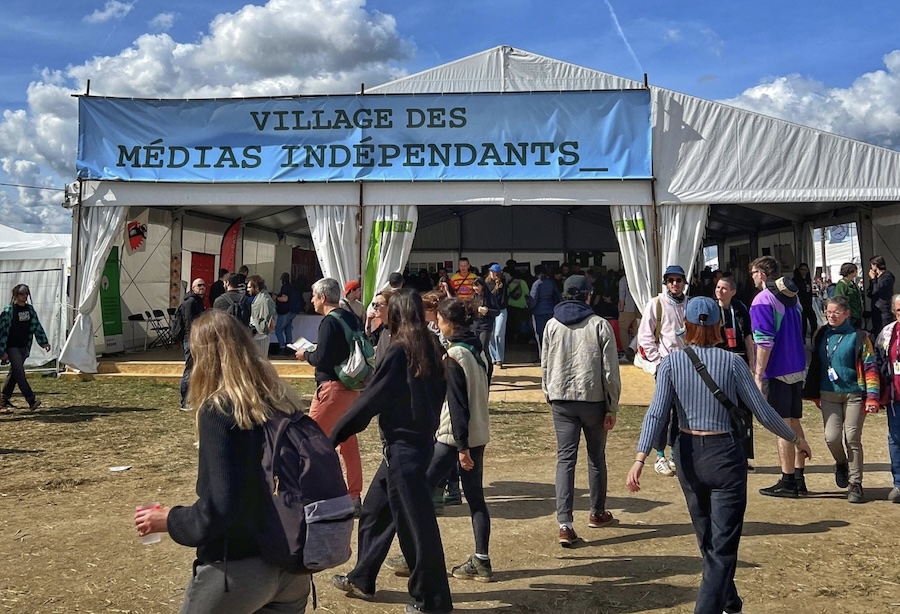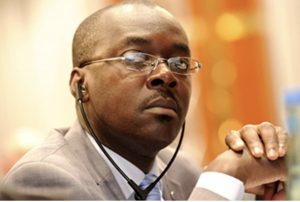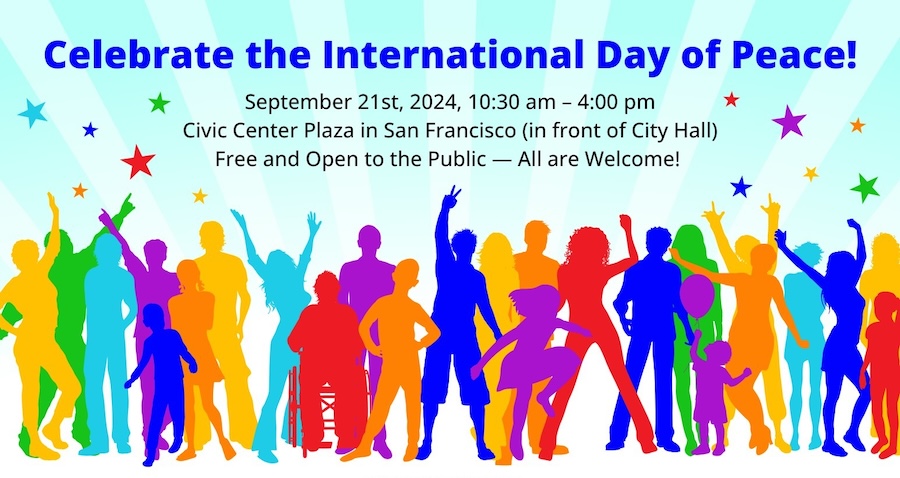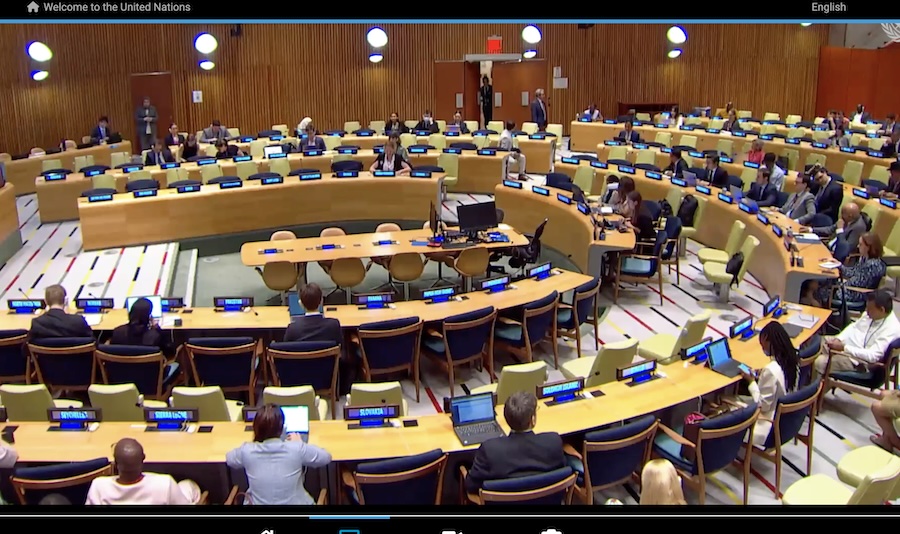FREE FLOW OF INFORMATION .
A survey by CPNN
We have found 64 events in 14 Asian and Pacific countries. They were listed in Google during the weeks of September 17-28 this year under the key words “International day of peace”, “Peace Day”, 国际和平日 (Chinese) 国際平和デ (Japanese) and अंतर्राष्ट्रीय शांति दिवस (Hindi). No doubt there were also events listed on the Internet in languages other than those for which we searched.
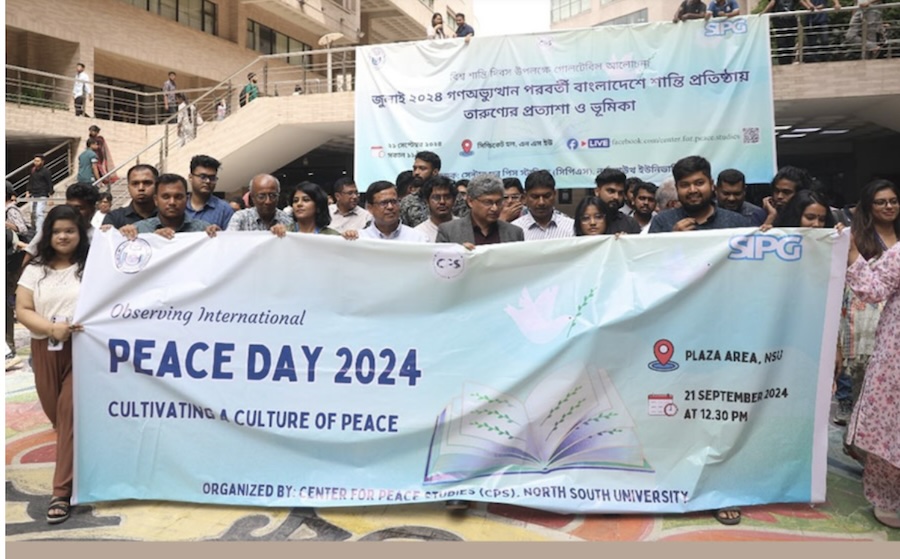
Banglasesh, NSU
Here are excerpts from the articles.
AUSTRALIA
BRISBANE: At this 13th annual UN International Day of Peace Brisbane lecture, we will hear from Louise Adler AM who is on the advisory committee of the Jewish Council of Australia and director of the Adelaide writers’ week. Louise will share with us why peace matters, the lessons of her own personal history and why speaking up against injustice is critical. Nasser Mashni is the President of the Australian Palestine Advocacy Network. Nasser will address the current crisis in Gaza, the West Bank and the region. He will share his views on what is needed to reach a peaceful and just life for people living in this war zone. The event is hosted by UNAAQ, St John’s Cathedral, Griffith University, University of Qld and Just Peace Qld Inc.
COWRA: Cowra’s Peace Day Program will be held this year on Thursday 19 September 2024 and includes:
– Cowra Community World Peace Bell Ceremony12pm, Cowra Civic Square, Darling Street
– Cowra Youth Peace Forum9.15am-2.45pm, Cowra Civic Centre
– Rotary Club of Cowra World Peace Day Dinner6pm for a 6.30pm start at Club Cowra.
– Alongside this year’s exciting program of events, Cowra Council is collaborating with the Cowra Youth Council and World Peace Bell Association to hold a Peace Day Public Speaking Competition for school students.
RIGPA: United Nations International Day Of Peace – Faith, Religion and Peace. Hosted by Rigpa Australia, Institute for Economics and Peace and the Raising Peace Festival. Speakers from Christian, Islamic, Jewish and Buddhist communities will be joined by Patricia Garcia AO from the Institute for Economics and Peace to speak about the Institute’s research into religion and wars. There will be a panel discussion with the opportunity for questions from the audience.
SYDNEY: In honour of the International Day of Peace, we invite you to a special Rotary Sydney lunch dedicated to our ongoing commitment to building a more peaceful world. This event will highlight Rotary Sydney’s significant role in promoting peace through our support of Rotary Peace Scholarships and Rotary Peace Activators.
TASMANIA: Unveiling the Peace Pole in Howrah, Tasmania.
VICTORIA: The Faith Communities Council of Victoria, in collaboration with United Religions Initiative and Religions for Peace Australia (along with other participant organisations) will present an online event in observance of United Nations World Day of Peace. This event is being conducted as part of the Raising Peace Festival, 2024. The theme of this event is Faith leaders sharing their personal practices to maintain equilibrium / inner peace when working in a fractured world for peace.
BANGLADESH
DHAKA: World Peace Day has been observed in the North South University (NSU) in a befitting manner with renewed pledge to build a new Bangladesh. On the occasion a roundtable discussion, peace rally, tree plantation, release of pigeons and film screening programmes were arranged in the university campus.
BHUTAN
TRASHIGANG: Bartsham Central School, Trashigang Bhutan celebrated the International Day of Peace. Two speakers were selected to deliver a speech (in Dzongkha, National language; and English language) on the importance of marking the day, maintaining peace in society, and saying no to racism (Dzongkha and English language). Later, all the staff and students took a peace pledge of maintaining peace in society and say no to racism.
CHINA
BEIJING: On 20 September, the results of the 2024 Youth Eyes on the Silk Roads international photo contest will be revealed in Beijing, China, as part of the 11th Peace Garden Peace Festival, which coincides with the International Day of Peace. The theme for this year’s event, “Diversity and Dialogue, Indispensable Path toward Global Peace and Development,” is organized in collaboration with the China World Peace Foundation (CWPF) and the Beijing International Peace Culture Foundation (BJIPCF). The festival will gather ambassadors, UNESCO representatives, and notable guests from various sectors to celebrate cultural understanding and the promotion of peace. . . . The event will showcase the 60 best photos from this year’s competition, accompanied by video presentations from the winners and jury members, as well as speeches from contest representatives.
HONG KONG: Video of Infinity Montessori School celebration of International Day of Peace – Light a Candle for Peace
JINAN: Chinese Vice President Han Zheng addressed the opening ceremony of the 2024 International Day of Peace commemoration in Jinan, south China’s Shandong Province, on Thursday. . . He called on all parties to follow the right direction and historical trend, and work together to establish strong synergy towards building a community with a shared future for mankind. . . About 180 representatives from foreign political parties, peace and friendship organizations, security think tanks, as well as relevant Chinese departments attended the event.
NANJING: On September 21, International Peace Day, the “Sing Peace, Sow the Future” event was held at the Peace Square of the Memorial Hall of the Victims in Nanjing Massacre by Japanese Invaders. More than 130 Chinese and foreign young people from 11 countries gathered here to sing songs of peace, sow purple gold grass seeds, remember history and talk about peace! In the open space in front of the Statue of the Statue of Peace, children from the Nanjing Purple Gold Grass Choir sang the songs “Purple Gold Grass Growing Towards the Sun” and “Broad Bean Song”. . . Afterwards, all the staff came to the sowing field in the Purple Grass Garden of the Memorial Hall and sowed the Purple Grass seeds, which symbolize peace. Mu Yang, a graduate student from Pakistan at Southeast University, said: “It is very meaningful to sow these seeds with my own hands. I hope that when the Purple Grass flowers bloom in March next year, people can see these flowers and remember the history behind them.”
SHANDONG: On the morning of September 19, the 2024 International Peace Day commemoration event opened at Shandong Building, further promoting the international community to advocate the concept of peace, build consensus on peace, cultivate a culture of peace, and inject positive energy into world peace and development. The event was jointly organized by the Chinese People’s Association for Peace and Disarmament and the Shandong Provincial People’s Government, with the theme of “Adhere to a shared destiny and work together to build a world of peaceful coexistence.” Some national dignitaries, former dignitaries, representatives of political organizations, peace groups, security think tanks and people from all walks of life from various countries participated in the commemorative event.
WEIFANG: On September 21, a press conference on the 2024 International Peace Day commemoration was held at Qingzhou Museum, introducing the overall situation and main achievements of the commemoration. . . . The commemoration activities mainly included the opening ceremony, the closing ceremony, the “Shared Destiny and Protecting Peace” story gathering and theatrical performances. Guests were invited to visit Weichai Group, Goertek Group, Qianque Village, Weifang Economic Development Zone, Weifang Kite Museum, Weixian Western Overseas Chinese Concentration Camp Site Museum, Qingzhou Ancient City, Qingzhou Museum and other places, and held three dialogue activities on “Jointly Implementing the Global Development Initiative”, “Jointly Practicing the Global Security Initiative” and “Jointly Promoting the Global Civilization Initiative”. During the event, Chinese and foreign guests and representatives discussed the international situation, expressed security concerns, and called for peace.
INDIA
BANGALORE: The Peace and Reconciliation Unit of Indian Social Institute, Bengaluru, in collaboration with the Jesuit Conference of South Asia (JCSA) Peace and Reconciliation Network organised an hour long online celebration of the International Day of Peace on 21st September, at 4.00 pm. The programme began with a video on the “Culture of Peace” and a welcome address by Mr. Amith Pereira. . . About 64 participants actively participated in the program and interacted with some insightful questions on peace-building in different parts of the country.
BHIKHARIPUR: Amaria. International Peace Day was organized in Bhikharipur in collaboration with Caritas India under Suchetna Sanstha Ashadeep Amaria. First of all, people were made aware through a rally. After that programs were conducted by the children. 290 childrenparticipated in this program.
BIHAR STATE: On the occasion of International Peace Day, a Prabhatpheri was taken out in the city on on saturday from the sports ground at the local Plus-Two Lee Academy by the Forbesganj subdivision unit of Bihar State Bharat Scouts and Guides.
BODOLAND TERRITORIAL REGION: Video of International Day of Peace celebration.
HATHRAS: A grand function was organized in the auditorium of Seksaria Sushila Devi Public School on the occasion of International Peace Day. . . In the program, various presentations like peace-themed drama, songs, and speeches were given by the students and teachers, which were inspiring towards a bright future while highlighting the importance of peace. . . A Shanti Paath was organized to pray for world peace at the Shanti Stambh located in the school premises. The message of peace was given by lighting candles, and white balloons were released into the sky as a symbol of peace.
HYDERABAD: Day 2 of Rising with Kindness youth summit coincides with International Peace Day. . . A group Heartfulness experiential meditation session was led by Daaji, Guide of Heartfulness & President of Shri Ram Chandra Mission . . During the summit, interactive breakout sessions for students were held with focus on relationships with parents, friends, and understanding difficult people, being a supportive professional, and being a Heartful leader.
JAMSHEDPUR: Narbheram Hansraj English School celebrated International Peace Day with a series of student activities. The highlight of the gathering was a touching poem recitation by a student. Additionally, the school band gave a wonderful rendition of John Lennon’s song “Imagine.” The program concluded with a thought-provoking “Thought for the Day.”
JHUNJHUNU: Under the aegis of Rajasthan State Bharat Scout Guide District Headquarters Jhunjhunu, International Peace Day was organized with great pomp in the Scout Guide office under the chief hospitality of Consumer Commission Chairman Manoj Meel. CO Scout Mahesh Kalawat said that before the event, a rally was organized by the Scout Guide under the development of the culture of peace for world peace.
KOKRAJHAR: Assam Bovernor Lawman Prasad Acharya today attended the grand celebration of International Peace Day 2024 held at Bodofa Cultural Complex in Kpkrajhar. The theme of the event was promoting the culture of peace in the Bodoland Terrirorial Region (BTR) and beyond.
KOHIMA, NAGALAND: The International Day of Peace was celebrated with a vibrant event at Rivenburge Chapel Hall, Baptist College, where Global Ambassador of MasterPeace COOLeaders, Imnainla Jamir inspired attendees through her speech and performance. Organized by the IQAC of Baptist College in collaboration with MasterPeace Nagaland, the celebration focused on “Cultivating a Culture of Peace.”
LADNUN: On the occasion of International Peace Day a program was organized by the Department of Nonviolence and Peace of Jain Vishwabharati Institute. In his address, the chief speaker of the program, deputy Superintendent of Police Vicky Nagpal said that progress is possible only when there is peace in the society. . . . On this ocassion, all the faculty members, researchers and students of the institute and more than 80 participants were present.
LUCKNOW: The ‘International Day of Peace – 21 September’, declared by the United Nations, was celebrated with great joy at the City Montessori School (CMS), Headquarters. On this occasion, leaders of various religions delivered insightful speeches, strongly proclaiming the importance of ‘religious unity, world unity and world peace.’ Prominent speakers included Rajyogni BK Radha Didi from Hinduism, Maulana Khalid Rashid Firangi Mahli and Maulana Yasub Abbas from Islam, Shri Harpal Singh Jaggi from Sikhism, Father Donald D’Souza and Pastor Firoz Masih from Christianity, Bhikkhu Gyanalok from Buddhism, Shri Shailendra Jain from Jainism and Dr. Mayuri Parikh from the Bahá’í Faith.
MEERUT: On the occasion of International Peace Day, the social organization The Growing People, in collaboration with the Municipal Corporation and Cantt, formed a human chain for world peace.
MUMBAI: The Royal Thai Consulate-General in Mumbai, the Tourism Authority of Thailand in Mumbai, and the International Institute for Peace through Tourism (IIPT) successfully hosted a remarkable event titled “Promoting Peace Through Tourism with Thailand and IIPT” on World Peace Day at IFBE, Mumbai. The event, held in celebration of the United Nations International Day of Peace, highlighted the critical role tourism can play in fostering global peace and understanding. The event brought together a diverse group of guests, including the Consul General of various countries, distinguished dignitaries, travel agents, airline managers, influencers, hotel managers, and other key players from the tourism industry. Ajay Prakash who assumed the global Presidency of IIPT in September 2023 spoke eloquently on the power of Tourism to connect people across all boundaries of race, religion or nationality and urged the travel industry to join hands to realise this higher paradigm of Tourism by encouraging all travellers to travel with an open mind and a gentle heart, with respect for their hosts, embracing the diversity they encounter, and encouraged them to adopt and propagate the IIPT Credo of the Peaceful Traveller.
MUMBAI, WESTERN EXPRESS HIGHWAY: On September 21st, millions of Mumbaikars travelling through Bandra Kurla Complex (B.K.C) and the Western Express Highway (W.E.H) witnessed a visual tribute to the International Day of Peace, also known as “Peace Day,” with a glowing flame projected across the ProDigi Digital Out-of-Home (DOOH) network. . . . The image was displayed across the ProDigi network in collaboration with the World Out of Home Organization (WOO) and the #EssaysForPeace initiative. At noon, for a duration of five minutes, the glowing flame appeared on 20 DOOH screens along a 4.7 km stretch of the Western Express Highway and the B.K.C Connector. The event ensured high visibility among daily commuters travelling between B.K.C, the Sea-Link, the airports, and major residential and commercial hubs.
MURLIGANJ: A seminar was organised on International Peace Day under the aegis of NSS National Service Scheme at KP College, Murliganj. Professor Mahendra Mandal stressed on the inevitability of peace in life and said that this day was celebrated for the first time in 1982 by many nations, political groups, military groups and people. In 2013, the United Nations Secretary General dedicated it to peace education. . . Dr Chandrashekhar Azad said that former Prime Minister of India Jawaharlal Nehru had given five fundamentals to establish peace in the world. These are also called the principles of Panchsheel.
RAMGARH: The Shantidhara Foundation organized a program on the occasion of International Peace Day in support of war-free world at Gandhi Chowk on Saturday. A wreath was plazced on Gandhi’s statue. Candles were lit and a two-minute silence was observed to express commitment to world peace and harmony.
SAHARANPUR: International Peace Day was celebrated by the education department of JV Jai College. Students highlighted the importance of Peace Day by presenting poems in their own words.
SURAJGARH: A meeting was held on world peace under the chairmanship of Dharampal Gandhi in the office of Adarsh Samaj Samiti India, a national literary, cultural and social institution. . . . Peace is possible in the world only when all of us move forward with the resolve to be good human beings and consider humanity as the biggest religion. We all have to adopt the thoughts of the Father of the Nation Mahatma Gandhi and leave the path of hatred and walk on the path of love. In this nuclear age it is necessary for us to appeal to people for peace.
Question for this article
What has happened this year (2024) for the International Day of Peace?
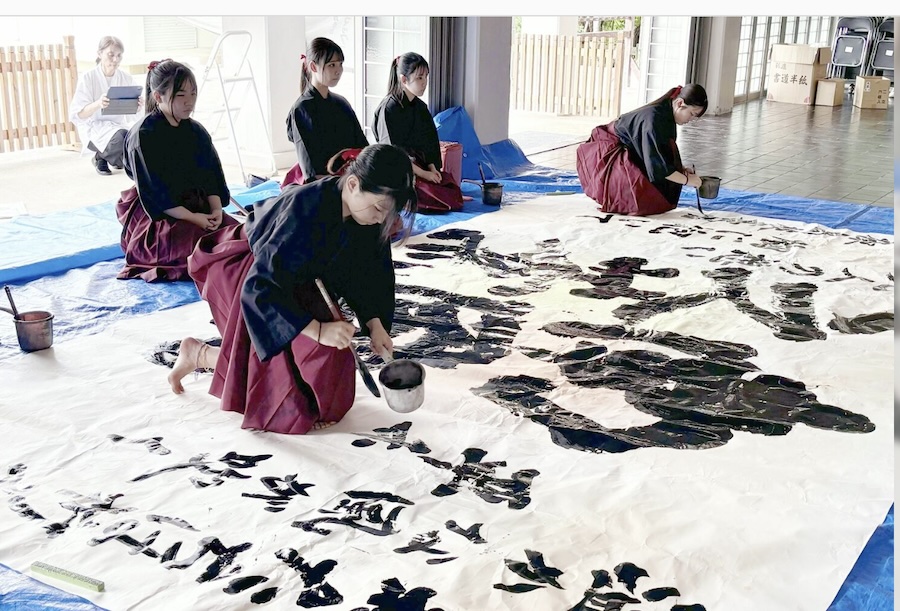
Japan, Okinawa
(Survey continued from left column)
INDIA (continued)
UDUPI: International Peace Day was observed in Christ School, Manipal. Dr Gerald Issac Lobo, Bishop of Udupi Diocese, and chairman of peace & justice, offered prayers and was welcomed to the quadrangle through the Indian tradition of aarathi and kalasha. . . Principal Eliza Vaz then delivered the welcome address and presented the report on the activities, progress, and development of the students.
INDONESIA
Jakarta: Video of children singing “Light a Candle for Peace,” in coordination with Montessori schools around the world. This heartwarming tradition unites children, teachers, and communities in a shared moment of harmony, as we gather to send our collective wishes for peace across the globe. At our school, we continue this tradition, fostering the values of compassion and global citizenship in our students as they become ambassadors for a more peaceful world.
JAPAN
FUKUYAMA CITY: On the 21st, the calligraphy club of Seishinkan High School (Kinosho-cho, Fukuyama City, Hiroshima Prefecture) dedicated a calligraphy piece filled with wishes for peace to Bingo Gokoku Shrine.
HAKOKATE CITY: On the 21st, the United Nations’ International Day of Peace, 15 members of the Hakodate Nishi High School calligraphy club and Takayuki Tenmaya (47), a teacher at the same school, wrote a calligraphy prayer for world peace at Hakodate Gokoku Shrine.
HASE: In conjunction with Peace Day (International Peace Day), a fashion show, talk event and market with the theme of peace, ethics and SDGs will be held on Monday, September 16th (national holiday). The venue is the old house Yuriika (2-15-14 Hase) near Shugenji Temple.
HIKONE CITY: In conjunction with the International Day of Peace on the 21st, a calligraphy offering was held at the Prefectural Gokoku Shrine (Osue-cho, Hikone City) on the 16th by students from the calligraphy club of Omi High School. Six members of the club took up their brushes and wrote their prayers for peace.
HIROSAKI CITY: To coincide with International Peace Day on September 21, high school students in Hirosaki City dedicated calligraphy works written in hopes of world peace to a shrine. Six students from the calligraphy club at Hirosaki Commercial High School dedicated their works to Aomori Prefecture Gokoku Shrine in Hirosaki City. On a large piece of paper measuring 2 meters in length and 3.5 meters in width, they wrote a message of hope for world peace, saying, “There is no way to pray for peace, peace is the way.” The organization “Wa Project TAISHI,” which engages in peace activities through calligraphy and other means, planned the event, and calligraphy clubs and 27 calligraphers from 49 schools nationwide, as well as ambassadors from 14 countries, will dedicate messages of peace to Gokoku shrines around the country.
HIROSHIMA: In Hiroshima, the site of the atomic bombing, a commemorative rally has been held every year since 2012 at Peace Park by atomic bomb survivors and high school students, organized by Mayors for Peace, but those involved are seeking an initiative with a greater ripple effect. Starting this year, with the aim of “spreading the desire for peace to the world even more widely,” “messages calling for peace to the world” by atomic bomb survivors and young people who will create the future will be recorded and sent via social media and the Internet to reach mainly young people who will lead the next generation.
ISE CITY: On September 21st, International Day of Peace, singer-songwriter Akiko Nakajima will hold a concert praying for peace, “Suikagami – Love Imagine Peace,” at Hinjitsukan (Futami-cho, Ise City), a nationally designated important cultural property.”>ISE CITY: On September 21st, International Day of Peace, singer-songwriter Akiko Nakajima will hold a concert praying for peace, “Suikagami – Love Imagine Peace,” at Hinjitsukan (Futami-cho, Ise City), a nationally designated important cultural property. In addition to Nakajima, eight other artists will be participating on the day: Noh performer and taiko drummer Okura Shonosuke, Ainu singer Toyokawa Yoko from Hokkaido, shakuhachi player Takeuchi Yoji from Ise City, guitarist Pepe Ito from Fukuoka, African percussionist Latyr Sy from Senegal, charango player Luis Carlos Severich from Bolivia, and Korean string instrument haegeum player Kang Eun-il from South Korea. In addition to musical performances, there will be a talk show about peace, and at the end, all eight will perform “Imagine,” composed by John Lennon, in eight languages.
KANSAI: To coincide with International Day of Peace, Tamarot Peace Week will be held, a week-long event to think about the importance of peace and to make wishes for the future. During the event, there will be a photo exhibition of children facing the reality of war, an exhibition calling for action towards peace, and on the final day, there will be an experience session for making origami cranes, a symbol of peace, and a chance to try out the parasport “Boccia.”
NAGASAKI CITY: On the 16th, nine members of the calligraphy club at Nagasaki Nihon University Junior and Senior High School (Isahaya City) wrote and dedicated a message for the United Nations International Day of Peace (the 21st) at Prefectural Gokoku Shrine in Jyoeimachi, Nagasaki City. Works by the “Peace Prayer Kids Guernica” project, organized by the Nagasaki Friendship Doll Association (Kenko no Kai, Chairperson Yamashita Akiko), were also displayed in the temple grounds.
NAGOYA CITY: On the 21st, the United Nations’ International Day of Peace, a calligraphy offering for world peace was held at Aichi Prefectural Gokoku Shrine in Naka-ku, Nagoya. Ten members of the calligraphy club at Aichi Prefectural Commercial High School participated and wrote messages expressing their wishes for recovery from the Noto Peninsula earthquake in January and for world peace.
NAHA CITY: At a shrine in Naha City, seven students from the Oroku High School calligraphy club participated in writing messages of peace at Gokoku Shrine. The students wrote messages on large pieces of paper measuring 3 meters in length and 6 meters in width, expressing their wishes for world peace and for a speedy recovery of areas affected by disasters such as the Noto Peninsula earthquake.
NIIGATA CITY: At Gokoku Shrine in Chuo Ward, Niigata City, a dedication calligraphy ceremony was held to pray for world peace. The calligraphy club of Niigata Daiichi High School wrote “Harmony,” while calligraphers Saisui Shimoda and his sibling Kohan wrote “Love,” both using large brushes. This event is held every year to coincide with International Day of Peace on the 21st, at Gokoku Shrines across the country and at Hiroshima Peace Memorial Park.
OKAYAMA CITY: On the 21st, which is the United Nations’ designated “International Day of Peace,” members of the calligraphy club at Okayama Minami High School (Okuda, Kita-ku, Okayama City) wrote and dedicated a calligraphy piece at Okayama Prefectural Gokoku Shrine in Okuichi, Naka-ku, Okayama City, praying for world peace. Eight first-year students wearing hakama wrote in powerful calligraphy on a piece of paper measuring three meters in length and four meters in width, “Why does war happen? Differences in values? Differences in ways of thinking?” and “Sports move people. Spread your wings and soar toward the realization of peace.” In honor of this summer’s Paris Olympic and Paralympic Games, the Olympic mark is placed in the center.
SAITAMA: Let’s pray for world peace on “International Day of Peace” September 21st is “International Day of Peace”. Saitama Prefecture Gokoku Shrine will hold the “8th World Peace Prayer” on September 21st (Sat).
SHIBUYA: The International Peace Film Festival, which introduces short films created by young people from around the world on the theme of peace and SDGs, will be held on September 16th at Human Trust Cinema Shibuya (Shibuya 1, Shibuya-ku). The festival is organized by the General Incorporated Association International Peace Film Festival
TOKYO: On September 21, 2024, Tokyo’s Yoyogi Park will transform into a vibrant hub of hope and harmony as it hosts “PEACE DAY 2024.” Organized by the non-profit PEACE DAY, this annual event, now in its sixth year, coincides with the International Day of Peace. What started in 2018 as a modest gathering has blossomed into a powerful movement, drawing people from all walks of life to celebrate peace and unity. Candle JUNE, Japan’s renowned candle artist, will create a candle installation, captivating attendees with its beauty and symbolic power. As night falls, thousands of candles will bathe Yoyogi Park in a soft glow, creating an atmosphere of tranquility and reflection. There will be live performances by S.T.K. (Sensual Technology Cooks) and a collaboration between internationally acclaimed artist SUGIZO and sound designer Tetra Tanizaki. SUGIZO, known for his work with iconic bands LUNA SEA and X JAPAN, brings his unique blend of poetic electric violin and immersive soundscapes to the stage.The festival lineup also includes special guests May J. and YonYon. May J., whose powerful voice and positive messages resonate with audiences worldwide, will share her multicultural background and musical talent. YonYon, a Seoul-born, Tokyo-raised DJ and music producer, will being an eclectic DJ set.
NEPAL
UNITED MISSION TO NEPAL: In Nawalparasi, a plantation programme brought together religious leaders, local government officials, and key stakeholders to plant over 150 diverse species of plants together, symbolizing hope and harmony within the community. The Interfaith Youth Group took to the streets with a powerful drama, highlighting the negative influence of social media and how it can disrupt family life and community peace. To end the day, they lit candles together, spreading the message of hope and peace throughout the community. Similarly, in Kapilvastu, UMN facilitated a street drama with the Jana Kalyan Youth Club to promote interfaith cultural and social harmony.
NEW ZEALANR
AOTEAROA: Join our 2024 International Day of Peace forum during the first Global Week of Action for Peace and Climate Justice, to discuss the links between militarisation and climate change and the urgent need for climate justice in the Pacific.On Thursday, 26 September 2024 at 1pm with presenters from Peace Movement Aotearoa, Aotearoa New Zealand Campaign on Military Spending (ANZCOMS), and Epeli Lesuma, Pacific Network on Globalisation
PAKISTAN
PRESIDENT AND PRIME MINISTER: Messages for International Day of Peace. In a statement, President Asif Ali Zardari condemned the ongoing violence in Palestine, describing Israel’s actions as genocidal. He highlighted the urgent need to address human rights violations occurring in Indian Illegally Occupied Jammu and Kashmir, where the Hindutva-inspired Modi regime has been accused of persecuting Muslims and minorities. . . Prime Minister Shahbaz Sharif echoed these sentiments, emphasising the need for dialogue to resolve longstanding regional disputes. He called for a fair and just settlement of the Kashmir issue through an impartial plebiscite, as per relevant UN Security Council Resolutions.
ISLAMABAD: Coinciding with the 25th observance of World Peace Day, and the conjoint Postdoctoral Appreciation Week celebrations of National Postdoctoral Association (USA) and Asia-Oceania Postdoctoral Academia (AOPDA), a unanimous proclamation revealed the world’s first digital repository for peace studies will be established in Pakistan.
KARACHI: Dhacss Seaview Campus. Let’s celebrate Peace Day with our Montessori kids! Video of children making paper doves.
LAHORE: A peace rally was organised in the Cathedral Church in connection with World “Peace Day” under the aegis of Commission for Inter-Religious Dialogue, here on Saturday. Candles of peace were lit by the inter-religious leaders.
RAWALPINDI: In a spirited celebration of International Peace Day, the National Counter Terrorism Authority (NACTA) on Saturday hosted a Peace Cycling Rally that not only promoted harmony but also fostered a sense of community across diverse groups. Themed “Cultivating Culture for Peace,” the event drew together cyclists of all ages, families, and differently-abled individuals, transforming the streets into a lively demonstration of solidarity and hope. NACTA’s Director General, Saleha Zakir Shah, addressed the crowd, underscoring the essential role of collective action in fostering a peaceful society. “Peace is the cornerstone of development,” she asserted, urging all citizens to actively contribute to a harmonious Pakistan.
PHILIPPIINES
PASSAY CITY: In St. Mary’s Academy Pasay, the International Day of Peace is celebrated with a spirit of unity, reflection, and action among the Ignacian Marian students, making them committed to manifesting the values of peace and love for each other. During the event, the student body sang the song ‘Let There Be Peace on Earth’ which has the verse “Let there be peace on earth, and let it begin with me. Let there be peace on earth, the peace that was meant to be.”
TUGUEGARAO CITY: St.Paul University Philippines commemorated the International Day of Peace through the KaPEACEtahan sa SPUP: Jam for Peace, which was spearheaded by The Paulinian Student Government in collaboration with the Center for External Relations, Alumni, and Advocacies, Internationalization, the Christian Formation Office, and the Community Development Center. The Jam for Peace commenced with a drum and lyre performance from the Basic Education Unit; after which, the opening liturgy was held, then Mr. Rucelj D. Pugeda (Head, Office of Student Affairs and Adviser) delivered the rationale. SPUP’s international students gave a cultural performance, then the Peacetang Paulino followed, with song and dance performances from the different college departments.
SOLOMON ISLANDS
MINISTRY OF TRADITIONAL GOVERNANCE, PEACE AND ECCLESIASTICAL AFFAIRS: In a statement marking the celebration of the International Day of Peace, Minister Hon Jamie Lency Vokia thanked the Ministry and its peace-building stakeholders for the commitments and effort rendered forwards maintaining sustainable, peace and unity in our beloved Country, Solomon Islands. He highlighted, since 2008, the government and the people of Solomon Islands through the Ministry of Traditional Governance, Peace & Ecclesiastical Affairs, have joined the international community to commemorate this day through various peace activities, themes and messages. . . Permanent Secretary Dr Derek Futaiasi also thanked and acknowledged Ministry staff for their continuous efforts and commitments in delivering peace-building programs and activities in the Country.
SOUTH KOREA
SEOUL: Kyung Hee University System held its annual Peace BAR Festival on Friday to celebrate the U.N.-designated International Day of Peace, observed annually on Sept. 21.
BAR stands for Kyung Hee University’s three core values — spiritual beauty, material affluence and humanly rewarding. During the annual event, participants discussed the world’s various daunting challenges, such as climate change, nuclear threats, famine and social inequality.
THAILAND
BANGKOK: Bangkok Patana school was covered in a sea of blue as Primary and Secondary School came together for an early celebration of the International Day of Peace. . . When asked, ‘What does Peace mean to you?’, students across Primary and Secondary had quite profound answers. “Peace means quiet!”, exclaimed Harry B in FS2. “Peace means there is equality, everyone is treated equally and there is kindness in hearts”, said Nana P, 6J.“Peace is when there is calmness and no wars. Where everyone is working together and no one is left out”, said Hugo T, 6J “Calmness, no tension and no conflict. When there is harmony around, thats’s what peace entails”, echoed Ellie and Alana from Year 12. “When all countries work diplomatically and everyday life is secure, that’s what peace is to me”, said Oisin M, 13B. Reggie K, 13O portrayed peace as “Green, serene, lots of nature and quietness around”.
RAJAMANGALA UNIVERSITY OF TECHNOLOGY LANNA: Ceremony for the International Day of Peace 2024. The event’s highlights included the reading of the United Nations Secretary-General’s message in both Thai and English, a message from the President of the Universal Peace Federation Foundation, and a one-minute silent prayer for peace.
